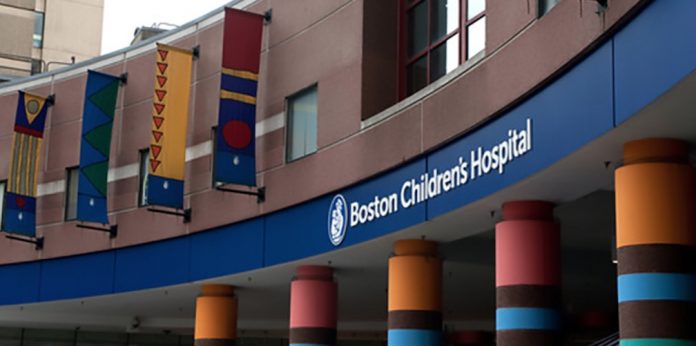In a move that intersex rights activists are cheering, Boston Children’s Hospital has become the second major institution in the US to require patients to reach an age of meaningful consent before receiving two types of procedures.
“As an intersex woman who was raised in Massachusetts, I am proud that BCH finally recognized the dignity of intersex people,” Kimberly Zieselman, executive director of interACT: Advocates for Intersex Youth. told 19thnews.org, a nonprofit media source reporting on gender, politics and policy.
“We must be able to live free from the threat of non-consensual medical interventions based on discrimination and fear of differences in sex anatomy,” Zieselman said.
Reports 19th News:
Each year, about 1.7 percent of people are born intersex, or people with sexual or reproductive anatomy that doesn’t neatly align into a binary of male or female. Some people develop those anatomical traits in adolescence or childhood, while others are born with them.
For decades, the standard medical protocol was to use surgery and hormonal therapy to try to change intersex children’s physical appearance. Clitoroplasties, the surgical creation of a clitoris (which can involve reducing its size), and vaginoplasty, which involves constructing a vagina, are two such surgeries. Activists have been protesting these practices for decades, and — though legal worldwide — they have been condemned by the United Nations, Amnesty International and Human Rights Watch.
Boston Children’s decision could reflect a turning point, activists said. It comes on the heels of a similar move by the Ann and Robert H. Lurie Children’s Hospital of Chicago, which announced in July it would suspend such intersex surgeries. …
Still, Boston Children’s change isn’t exhaustive. The hospital has not indicated it will drop other intersex surgeries, including gonadectomies, which constitute the removal of certain reproductive glands, or phalloplasties, which enlarge penises.
“Vaginoplasties and cliteroctomies are very destructive, and it’s very welcome news,” [Intersex Justice Project cofounder Pidgeon] Pagonis said. “But it means there’s still more work to do.”
There are a host of physical consequences to intersex surgeries: loss of sexual sensation, incontinence, fertility problems and pain during intercourse are just a few. And beyond physical consequences, intersex surgeries can have lifelong pyschological impact.
There are cases when surgery can provide benefits — namely, if a child is unable to pass urine, said Sean Saifa Wall, another IJP co-founder. But those aren’t the norm. Broadly, a 2017 report authored by three former U.S. Surgeons General noted little benefit to conducting genital surgery on children.
“The level of hyper-vigilance, of just trauma, the emotional and mental health trauma is lifelong,” Wall said. “We can lessen the potential psychological and physical trauma.”
Wall said he hopes Boston’s shift spurs change, not only from other hospitals, but from insurance companies and lawmakers as well, so that it is not incumbent on activists to pressure their individual medical providers.
Read the complete article at 19thnews.org.
Not a subscriber? Sign up today for a free subscription to Boston Spirit magazine, New England’s premier LGBT magazine. We will send you a copy of Boston Spirit 6 times per year and we never sell/rent our subscriber information. Click HERE to sign up!










